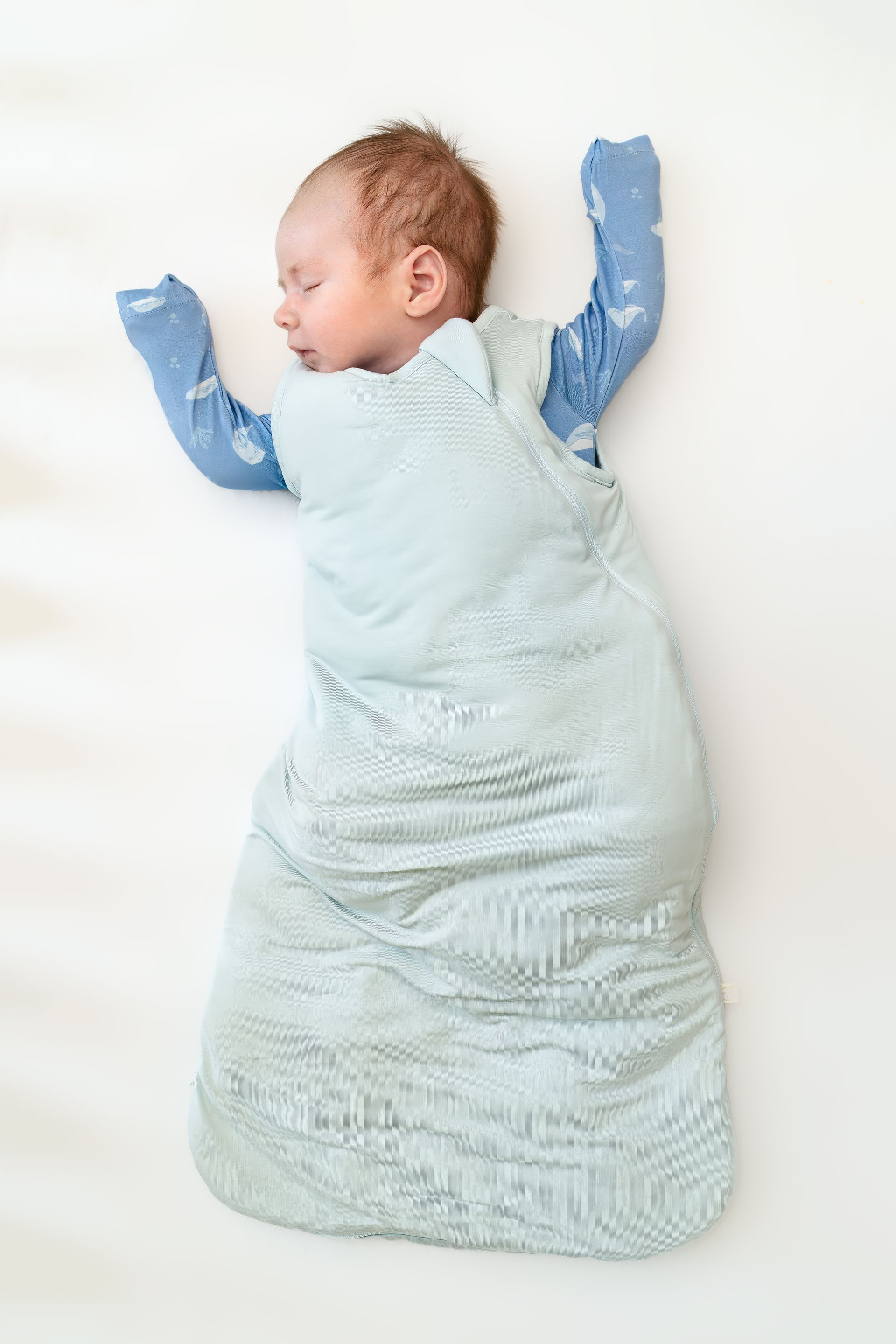Understanding your Baby’s Sleep Cues
A Compilation of the most common baby sleep cues
Written by Lamis Benjelloun
When you and I get sleepy, we may feel lethargic, our eyelids might droop and we may start yawning. That’s how we know that it’s time for bed. But how do we know when our children are sleepy? In many cases, we decide our baby needs to go to bed because they are crying and we’ve tried everything else to no avail. In better cases, we put them to bed when we see them yawning. While the second scenario is slightly better than the first one, I can confidently say that if you have waited until the yawn to start your bedtime routine, you have probably waited too long.
Babies have a way of telling us that they are sleepy. Though they are not ready to use words, they do have cues for almost everything to help us navigate their needs. This goes for sleep as well. Sleepy cues look different from child to child but what’s common for all children is that they start very subtle and accelerate in intensity. To make it easier for you to spot, I have grouped the most common cues in three main categories.
Ideally, you want to be within 10 minutes from laying babe down in crib when you spot the first category, be right about to turn the lights out when you reach category 2 and hopefully, you may never find out what category 3 looks like!
The “I’m getting sleepy” cues
When babies are getting sleepy, they communicate with us through non-verbal cues. They may look away or have a distant gaze. This means that they are ready to go to bed. As they get older, these signs may look like your child wanting extra cuddles or randomly laying down during play. As these first set of signals tend to be more subtle and different for each child, it may take you some observation time to spot them. The easiest time to see them is if you watch your child at the end of the day, right before dinner. Once you have come to recognize them, start that pre-nap routine as you soon as you see them or aim to be at last few steps of the bedtime routine as they are happening. If you respond to these cues, going to sleep will be a much easier process for your child and the bedtime routine will be smoother. Below are the most common examples:
Distant gaze or zoning out
Getting Calmer and quieter
Looks away and may appear disinterested
Pink/Red brows or lower eyelid
Decreased activity
Wanting to cuddle
Lying down
The “Time for bed NOW” cues
Stage 2 sleepy cues are the more visible ones, or the ones we know most. Baby at this point is probably yawning (maybe repeatedly), rubbing their eyes, and acting fussy. For older children, they become clingier, whining, they start reaching out for their favorite teddy or blanket, maybe sucking their thumb or pacifier. This means that they are ready to go to bed RIGHT now. If you are already at this stage, I suggest you skip the pre-nap routine or shorten the bedtime routine, as baby is pretty much ready for sleep. Below are some common cues for this stage:
Yawning
Rubbing eyes
Fussy
Hard to distract or keep happy
Eyelids drooping
Reaching for teddy or blanky
Sucking thumb or fingers
Sucking pacifier
Whining
The “It’s too late” cues
Once you are past stage 2, it is likely that you have passed baby’s ideal time to go to sleep. Now their cries are more desperate, and their behaviors are signs that baby is overtired. This stage is usually characterized by a lot of crying, screaming and jerky limb movements. That image of a baby/child arching their back with a rigid body is very typical for this overtired state. For the older kiddos, it looks like a lot of meltdowns and tantrums, a rise in activity levels, and an uncharacteristic clumsiness. Some of the more common overtired signs are:
Pulling ears or hairs
Irritable
Inconsolable crying
Screaming
Arching/Rigid body
Pushes away
Jerky limb movement
Overactive
Meltdowns and tantrums
Resisting bedtime
Clumsy
The thing about sleepy cues is that initially they are hard to spot, so take the time to observe your child and identify his favored sign. Trust me, once you know them, you will save yourself a lot of angst as putting baby to sleep at the first sign of sleepiness is exponentially easier than doing so once their bodies enter the overtired stage.
What do you child’s sleep cues look like? Are they easy to identify?





